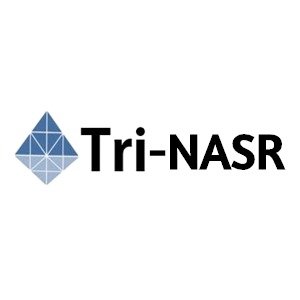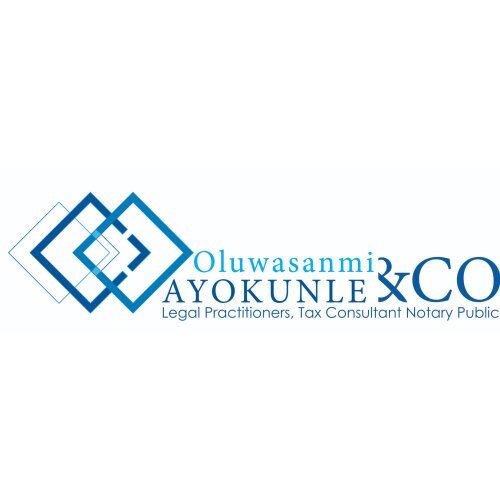Best E-commerce & Internet Law Lawyers in Ikeja
Share your needs with us, get contacted by law firms.
Free. Takes 2 min.
List of the best lawyers in Ikeja, Nigeria
About E-commerce & Internet Law in Ikeja, Nigeria
E-commerce & Internet Law in Ikeja, Nigeria is a rapidly evolving field that governs the legal aspects of conducting business online. As the commercial hub of Lagos State and a technological center, Ikeja is at the forefront of digital transformation, making it a key area for the development and implementation of e-commerce regulations. These laws encompass a broad range of issues from online consumer protection, intellectual property rights, data privacy, digital contracts, to cybersecurity. As Nigeria continues to embrace digital commerce, understanding these legal frameworks is crucial for businesses and consumers alike.
Why You May Need a Lawyer
Engaging a lawyer specializing in E-commerce & Internet Law can be beneficial for several reasons:
- Setting Up an E-commerce Business: Legal assistance in drafting terms of service, privacy policies, and compliance with regulatory requirements.
- Intellectual Property: Protecting digital assets such as trademarks and copyrights in online spaces.
- Data Protection: Ensuring compliance with data privacy laws, such as the Nigeria Data Protection Regulation (NDPR).
- Consumer Protection: Addressing disputes arising from online sales and services.
- Contractual Issues: Understanding digital contracts and resolving contract disputes.
- Cybersecurity: Dealing with legal implications of data breaches and cyber threats.
Local Laws Overview
The legal framework governing E-commerce & Internet Law in Ikeja is influenced by both national legislation and local regulations. Key aspects include:
- Nigeria Data Protection Regulation (NDPR): This regulates the processing of personal data and applies to all transactions intended for processing personal data within Nigeria.
- Cybercrimes (Prohibition, Prevention, Etc) Act, 2015: This law protects against cybercrimes and establishes offenses like identity theft and online fraud.
- Electronic Transactions Act: Governs online transactions, providing for electronic contracts, records, and signatures.
- Consumer Protection Framework: Overseen by the Federal Competition and Consumer Protection Commission (FCCPC), ensuring fair trade practices and consumer rights.
Frequently Asked Questions
What is e-commerce law?
E-commerce law refers to the legal principles that govern the conduct of business over the internet and other electronic networks, including online transactions, digital contracts, and consumer protection.
Are electronic contracts legally binding in Nigeria?
Yes, electronic contracts are legally recognized and binding in Nigeria provided they meet the basic requirements of valid contracts under the Nigerian law.
How can I protect my online business from cyber threats?
Implement robust cybersecurity measures, comply with legal obligations under the Cybercrimes Act, and seek legal advice to mitigate risks related to data breaches and cyberattacks.
What rights do consumers have under e-commerce law?
Consumers have rights to safe products, fair terms and conditions, clear information on purchases, and recourse for defective goods or services.
Can I use electronic signatures in my business contracts?
Yes, electronic signatures are legally acceptable for business contracts in Nigeria as per the Electronic Transactions Act.
What is digital piracy and how can I prevent it?
Digital piracy involves unauthorized use or distribution of digital content. Prevent it by enforcing intellectual property rights and implementing digital rights management tools.
How do data protection regulations affect my online business?
Data protection regulations, such as the NDPR, require businesses to handle personal data responsibly and ensure the privacy and protection of data subjects’ information.
Do I need to register my e-commerce business?
Yes, you should register your e-commerce business with the Corporate Affairs Commission (CAC) in Nigeria and comply with applicable regulatory requirements.
What should be included in a privacy policy for an e-commerce website?
A privacy policy should outline how your business collects, uses, stores, and protects user data, including any third-party data sharing practices.
How do I resolve disputes with customers online?
Dispute resolution can involve legal processes or alternative dispute resolution methods such as mediation, guided by the terms of service and relevant consumer protection laws.
Additional Resources
For more assistance, consider reaching out to the following resources:
- National Information Technology Development Agency (NITDA): For guidance on data protection regulations.
- Federal Competition and Consumer Protection Commission (FCCPC): For consumer rights matters.
- Lagos Chamber of Commerce and Industry: For business networking and compliance advice.
- Corporate Affairs Commission (CAC): For business registration and legal compliance.
Next Steps
If you need legal assistance in the area of E-commerce & Internet Law, consider the following steps:
- Consult with a specialized legal professional in e-commerce law to assess your specific needs.
- Ensure your business complies with all relevant laws and regulations.
- Stay informed about developments in e-commerce regulations by attending workshops and engaging with industry bodies.
- Consider joining business networks to connect with other industry professionals and share legal best practices.
Lawzana helps you find the best lawyers and law firms in Ikeja through a curated and pre-screened list of qualified legal professionals. Our platform offers rankings and detailed profiles of attorneys and law firms, allowing you to compare based on practice areas, including E-commerce & Internet Law, experience, and client feedback.
Each profile includes a description of the firm's areas of practice, client reviews, team members and partners, year of establishment, spoken languages, office locations, contact information, social media presence, and any published articles or resources. Most firms on our platform speak English and are experienced in both local and international legal matters.
Get a quote from top-rated law firms in Ikeja, Nigeria — quickly, securely, and without unnecessary hassle.
Disclaimer:
The information provided on this page is for general informational purposes only and does not constitute legal advice. While we strive to ensure the accuracy and relevance of the content, legal information may change over time, and interpretations of the law can vary. You should always consult with a qualified legal professional for advice specific to your situation.
We disclaim all liability for actions taken or not taken based on the content of this page. If you believe any information is incorrect or outdated, please contact us, and we will review and update it where appropriate.










